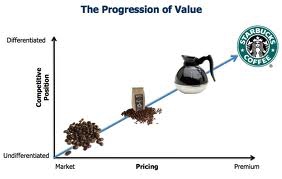Apr 05, 2015
From the Experience Economy to the Transformation Economy
In 1999, Joseph Pine and James Gilmore wrote a seminal book titled “The Experience Economy” (Harvard Business School Press, Boston, MA) that theorized the shift from a service-based economy to an experience-based economy. According to these authors, in the new experience economy the goal of the purchase is no longer to own a product (be it a good or service), but to use it in order to enjoy a compelling experience. An experience, thus, is a whole-new type of offer: in contrast to commodities, goods and services, it is designed to be as personal and memorable as possible. Just as in a theatrical representation, companies stage meaningful events to engage customers in a memorable and personal way, by offering activities that provide engaging and rewarding experiences.

Indeed, if one looks back at the past ten years, the concept of experience has become more central to several fields, including tourism, architecture, and – perhaps more relevant for this column – to human-computer interaction, with the rise of “User Experience” (UX). The concept of UX was introduced by Donald Norman in a 1995 article published on the CHI proceedings (D. Norman, J. Miller, A. Henderson: What You See, Some of What's in the Future, And How We Go About Doing It: HI at Apple Computer. Proceedings of CHI 1995, Denver, Colorado, USA).
Norman argued that focusing exclusively on usability attribute (i.e. easy of use, efficacy, effectiveness) when designing an interactive product is not enough; one should take into account the whole experience of the user with the system, including users’ emotional and contextual needs. Since then, the UX concept has assumed an increasing importance in HCI.
As McCarthy and Wright emphasized in their book “Technology as Experience” (MIT Press, 2004): “In order to do justice to the wide range of influences that technology has in our lives, we should try to interpret the relationship between people and technology in terms of the felt life and the felt or emotional quality of action and interaction.” (p. 12).
However, according to Pine and Gilmore experience may not be the last step of what they call as “Progression of Economic Value”. They speculated further into the future, by identifying the “Transformation Economy” as the likely next phase. In their view, while experiences are essentially memorable events which stimulate the sensorial and emotional levels, transformations go much further in that they are the result of a series of experiences staged by companies to guide customers learning, taking action and eventually achieving their aspirations and goals.
In Pine and Gilmore terms, an aspirant is the individual who seeks advice for personal change (i.e. a better figure, a new career, and so forth), while the provider of this change (a dietist, a university) is an elictor. The elictor guide the aspirant through a series of experiences which are designed with certain purpose and goals. According to Pine and Gilmore, the main difference between an experience and a trasformation is that the latter occurs when an experience is customized: “When you customize an experience to make it just right for an individual - providing exactly what he needs right now - you cannot help changing that individual. When you customize an experience, you automatically turn it into a transformation, which companies create on top of experiences (recall that phrase: “a life-transforming experience”), just as they create experiences on top of services and so forth” (p. 244).
A further key difference between experiences and transformations concerns their effects: because an experience is inherently personal, no two people can have the same one. Likewise, no individual can undergo the same transformation twice: the second time it’s attempted, the individual would no longer be the same person (p. 254-255). But what will be the impact of this upcoming, “transformation economy” on how people relate with technology? If in the experience economy the buzzword is “User Experience”, in the next stage the new buzzword might be “User Transformation”.
Indeed, we can see some initial signs of this shift. For example, FitBit and similar self-tracking gadgets are starting to offer personalized advices to foster enduring changes in users’ lifestyle; another example is from the fields of ambient intelligence and domotics, where there is an increasing focus towards designing systems that are able to learn from the user’s behaviour (i.e. by tracking the movement of an elderly in his home) to provide context-aware adaptive services (i.e. sending an alert when the user is at risk of falling). But likely, the most important ICT step towards the transformation economy could take place with the introduction of next-generation immersive virtual reality systems. Since these new systems are based on mobile devices (an example is the recent partnership between Oculus and Samsung), they are able to deliver VR experiences that incorporate information on the external/internal context of the user (i.e. time, location, temperature, mood etc) by using the sensors incapsulated in the mobile phone.
By personalizing the immersive experience with context-based information, it will be possibile to induce higher levels of involvement and presence in the virtual environment. In case of cyber-therapeutic applications, this could translate into the development of more effective, transformative virtual healing experiences.
23:14 | Permalink | Comments (0)







The comments are closed.